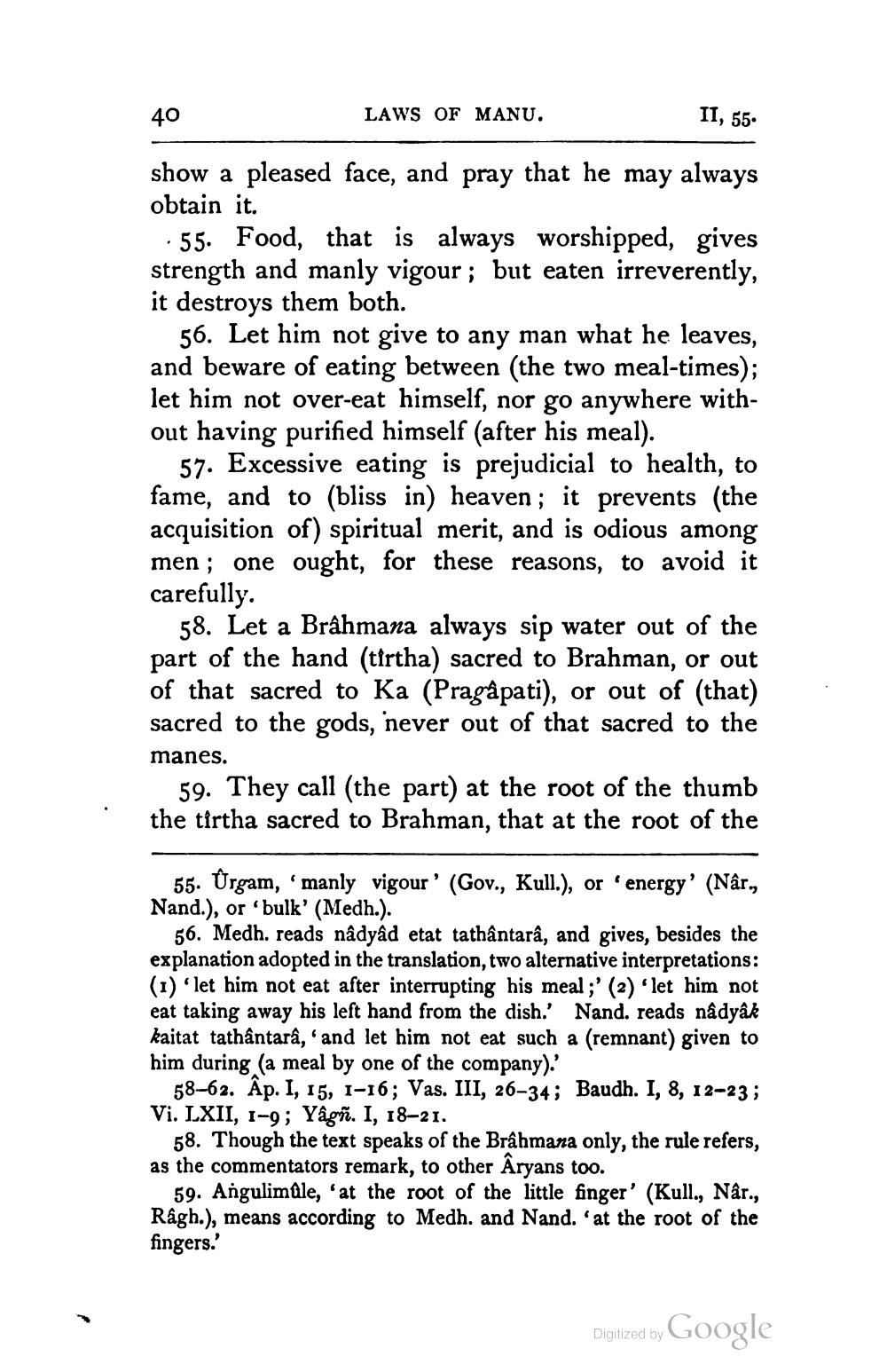________________
LAWS OF MANU.
II, 55.
show a pleased face, and pray that he may always obtain it.
. 55. Food, that is always worshipped, gives strength and manly vigour ; but eaten irreverently, it destroys them both.
56. Let him not give to any man what he leaves, and beware of eating between (the two meal-times); let him not over-eat himself, nor go anywhere without having purified himself (after his meal).
57. Excessive eating is prejudicial to health, to fame, and to (bliss in) heaven; it prevents (the acquisition of) spiritual merit, and is odious among men; one ought, for these reasons, to avoid it carefully.
58. Let a Brahmana always sip water out of the part of the hand (tirtha) sacred to Brahman, or out of that sacred to Ka (Pragàpati), or out of (that) sacred to the gods, never out of that sacred to the manes.
59. They call (the part) at the root of the thumb the tirtha sacred to Brahman, that at the root of the
55. Urgam, 'manly vigour' (Gov., Kull.), or energy' (Nâr, Nand.), or "bulk' (Medh.).
56. Medh. reads nâdyâd etat tathântara, and gives, besides the explanation adopted in the translation, two alternative interpretations: (1) 'let him not eat after interrupting his meal ;' (2) 'let him not eat taking away his left hand from the dish.' Nand. reads nadyak kaitat tathântara, and let him not eat such a (remnant) given to him during (a meal by one of the company).'
58–62. Âp. I, 15, 1-16; Vas. III, 26-34; Baudh. I, 8, 12-23; Vi. LXII, 1-9; Yagñ. I, 18-21.
58. Though the text speaks of the Brâhmana only, the rule refers, as the commentators remark, to other Aryans too.
59. Angulimüle, at the root of the little finger' (Kull., Når., Ragh.), means according to Medh. and Nand. at the root of the fingers.'
Digitized by Google




